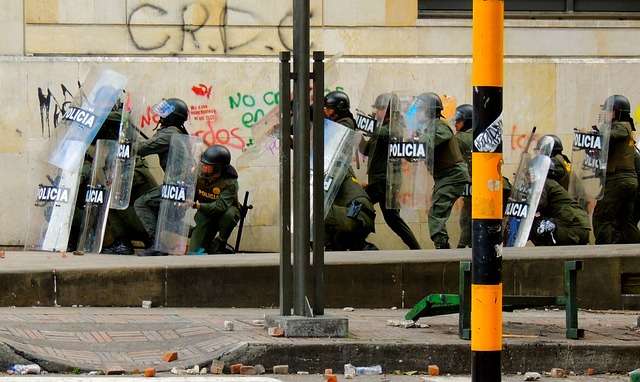In the closing hours of a last-ditch attempt by WTO member states to reach an agreement on a July framework it was clear that the WTO has not learnt any lessons. Not only did the substance of the framework fail to address the life and death concerns of developing countries but the process was so rotten that developing countries were being bullied and pressured, behind closed doors, to accept positions that are not in their interests.
Take cotton for example, on Thursday night, the four West African states – Benin, Burkina Faso, Mali and Chad – who proposed the Cotton Initiative, were subject to intense negotiations by the US until 4am in order to reach a "compromise outcome" on the cotton issue. The result of this intense negotiating session is the current text which does a great job in accommodating the US position but offers little comfort to 10 million cotton farmers in West Africa who are told that the WTO will set up a sub-committee on cotton to review the situation. Further negotiations and consultations similar to the cotton negotiations, for example in agriculture and non-agricultural market access (NAMA), will continue through the night and all day Saturday to ensure that any member-state resisting the framework is put in their proper place.
This process is highly unjust and completely unacceptable given the fact that the text still reflects the interests of developed countries and fails to offer anything concrete for development. The sad truth is that rich countries, particularly the EU and US, have failed to make any concrete concessions to move toward a more fair and equitable trading system. The text remains unbalanced in favour of the US and EU. For example, it retains the US demands for an expanded blue box and still contains strong and specific language on "sensitive products" for the EU, even as it tells developing countries to decrease their miniscule supports under the de minimis category.
The text maintains the status quo of market distortions and in doing so fails to make any progress towards a fair and market-oriented agricultural trading system that tackles the structural causes of market distortions and prevents agricultural dumping. Unless widespread agricultural dumping is addressed there is little hope for developing countries to protect and promote food security, rural livelihoods and rural development.
We make an urgent plea to all developing country member-states to resist the bullying tactics of the US and EU and reject the July framework in its current state. As it stands the text will only serve to further entrench poverty and ruin the lives of millions of farmers globally. Instead, we want multilateral trade rules that are fair for all rather than rules that protect the strong and destroy the weak.
Signatories of the Statement
Focus on the Global South, Thailand
The Oakland Institute, US
Food First, US
International Forum on Globalization, US
11.11.11-Coalition of the Flemish North-South Movement, Belgium
Friends of the Earth International
Wisconsin Fair Trade Campaign, US
Attac, Norway
ROBA dell’ Altro Mondo, Italy
Tradewatch ITAL, Italy
Rete Lilliput, Italy
Stop MAI Coalition, Australia
Nayakrishi Andolon, Bangladesh
UBINIG, Bangladesh
Alliance of Progressive Labor (APL), Philippines
World Forum of Fisher Peoples
National Fishworkers’ Forum, India







